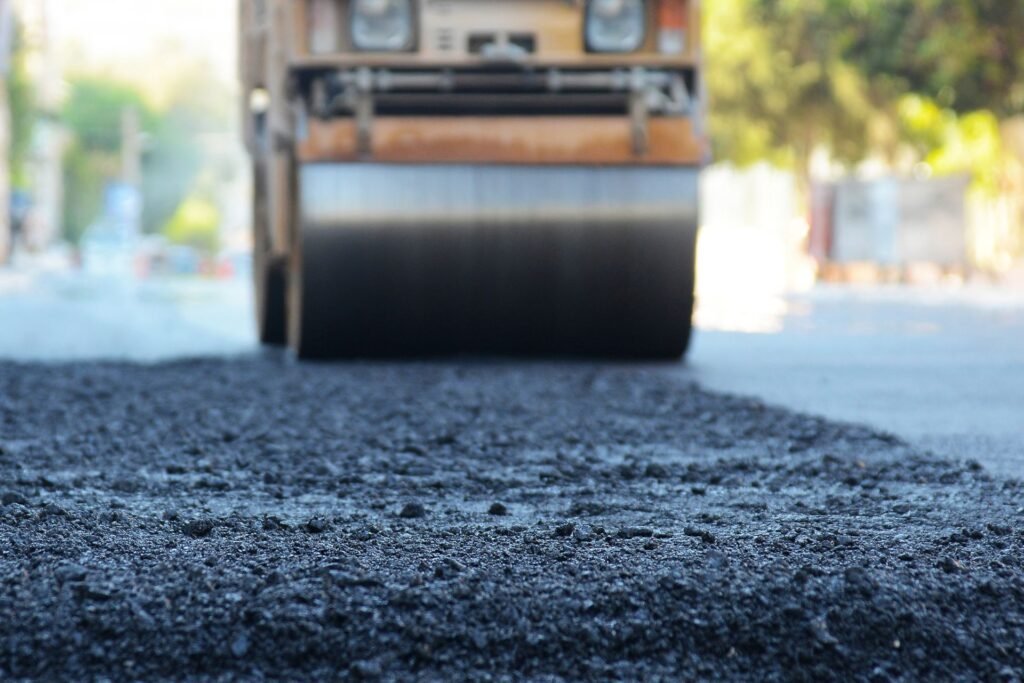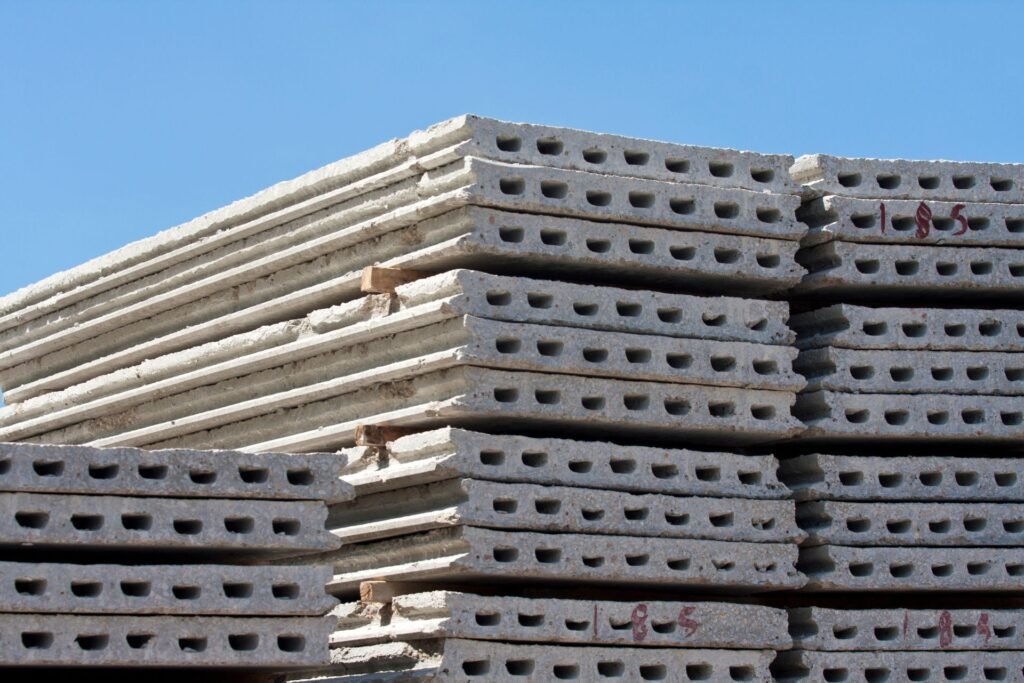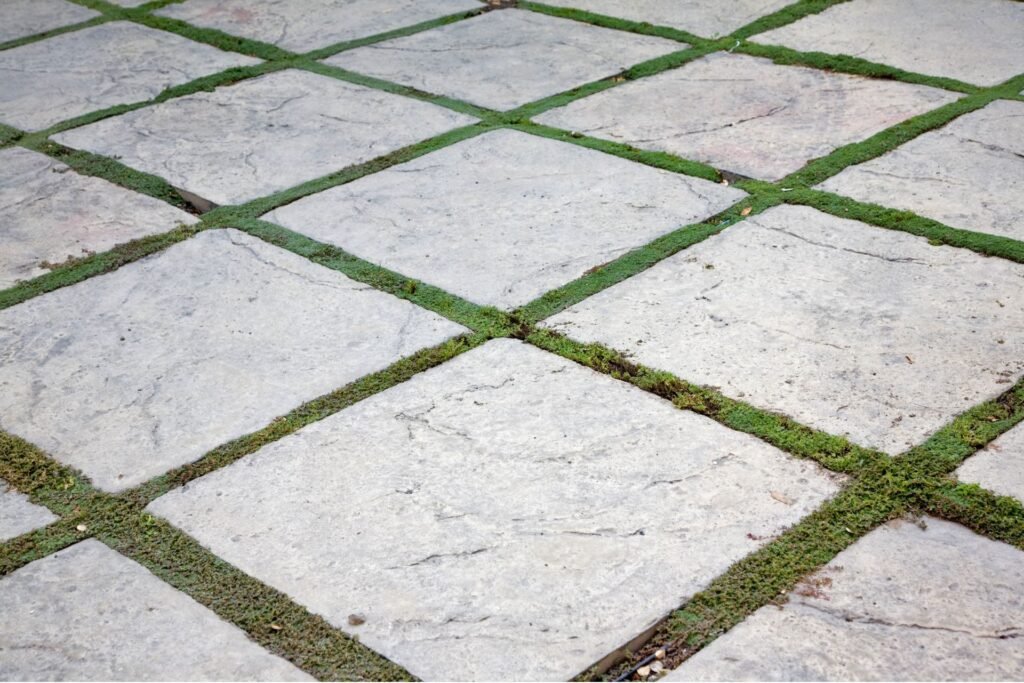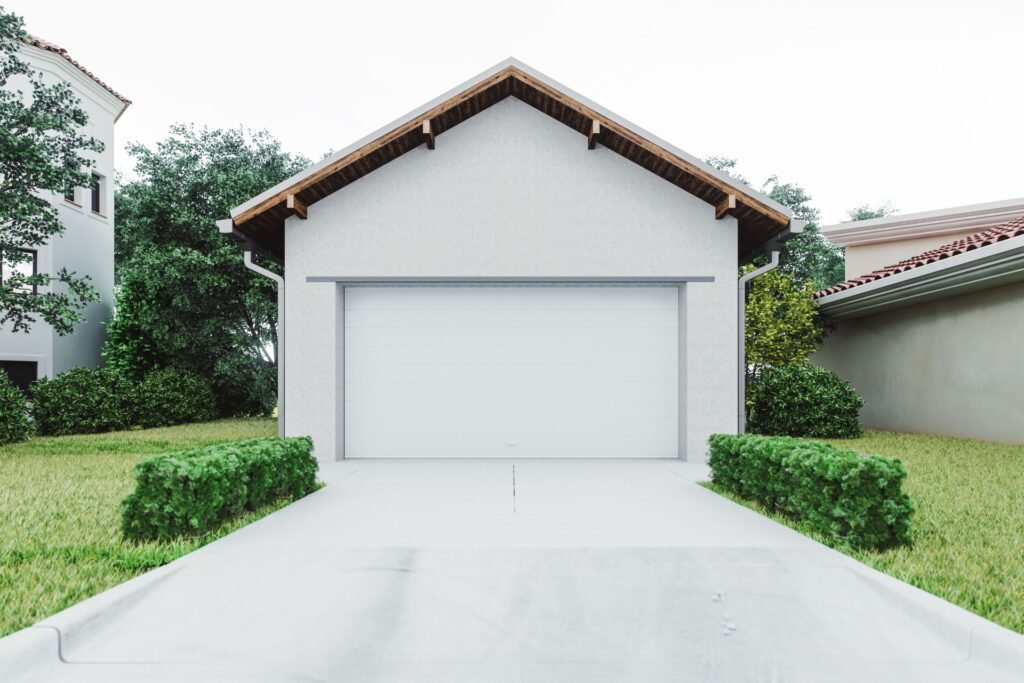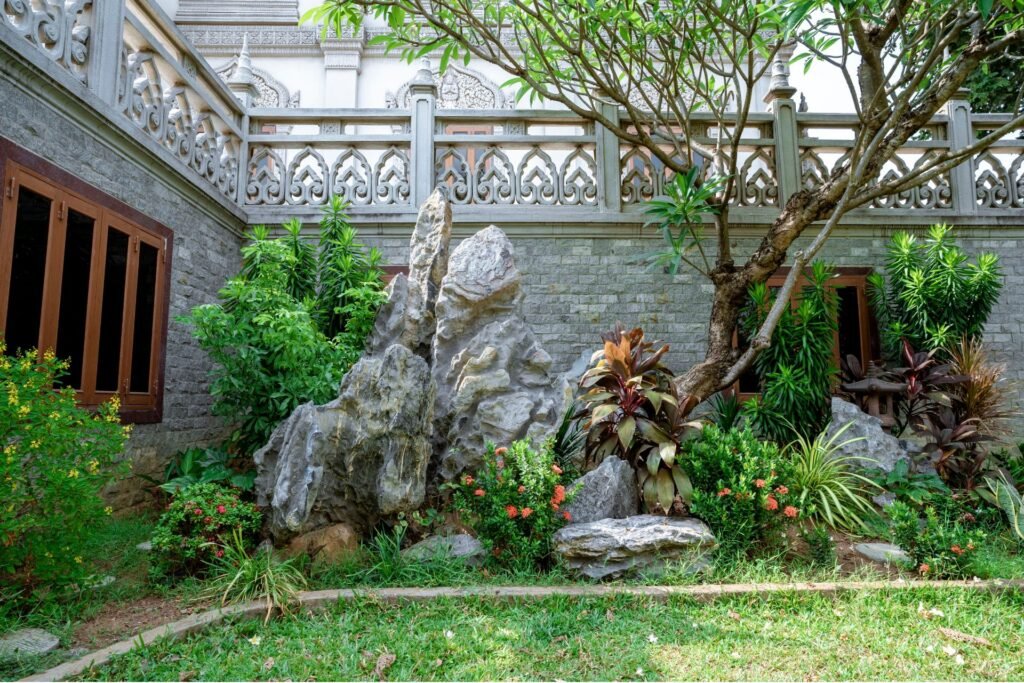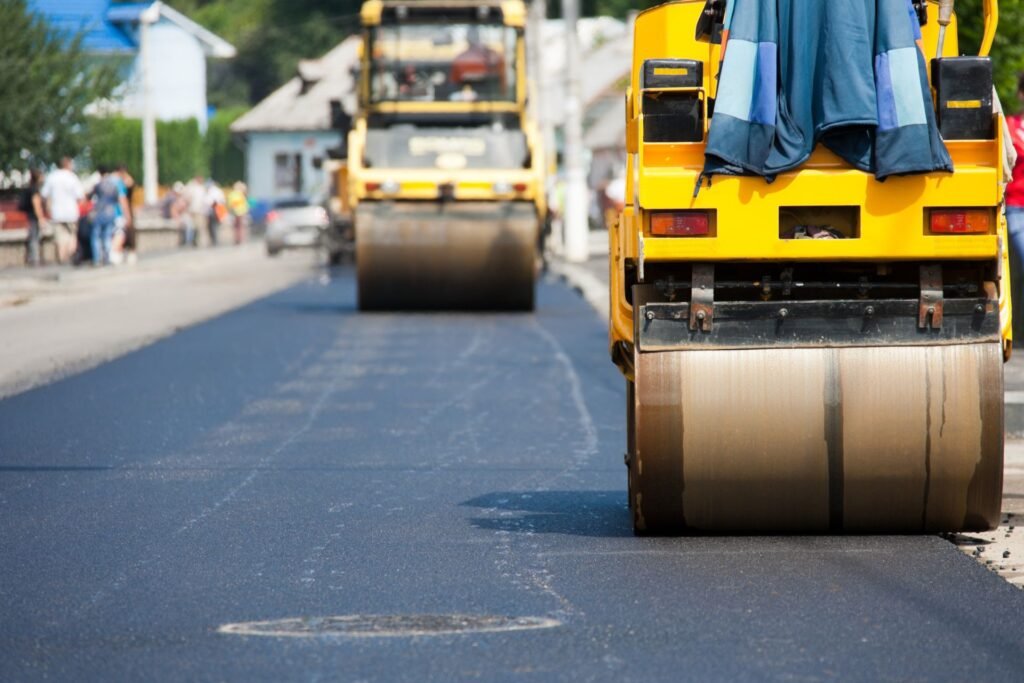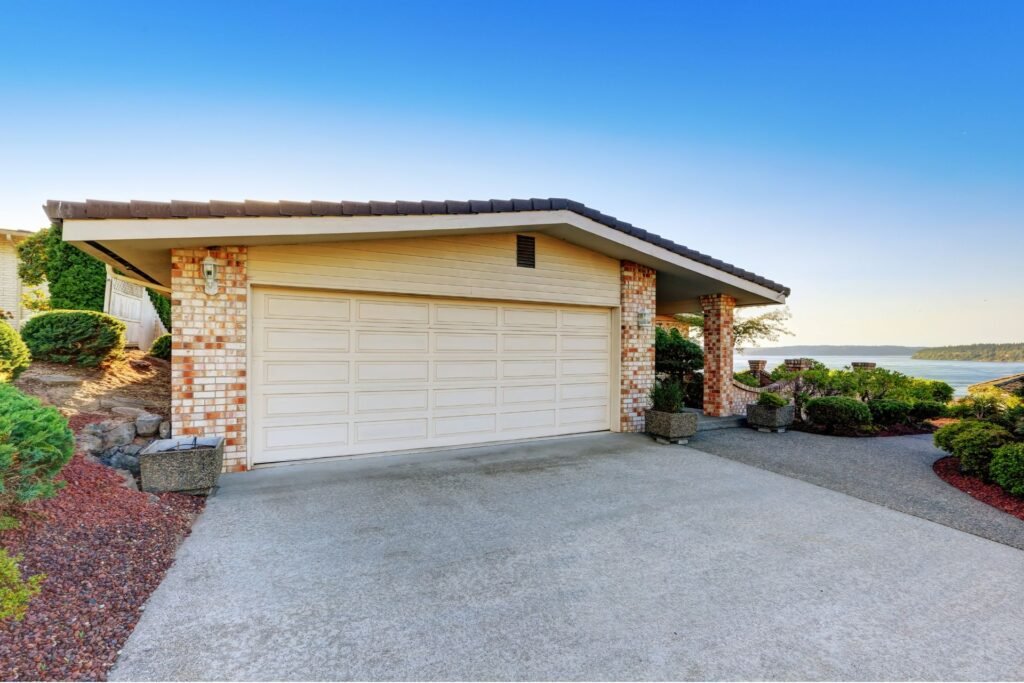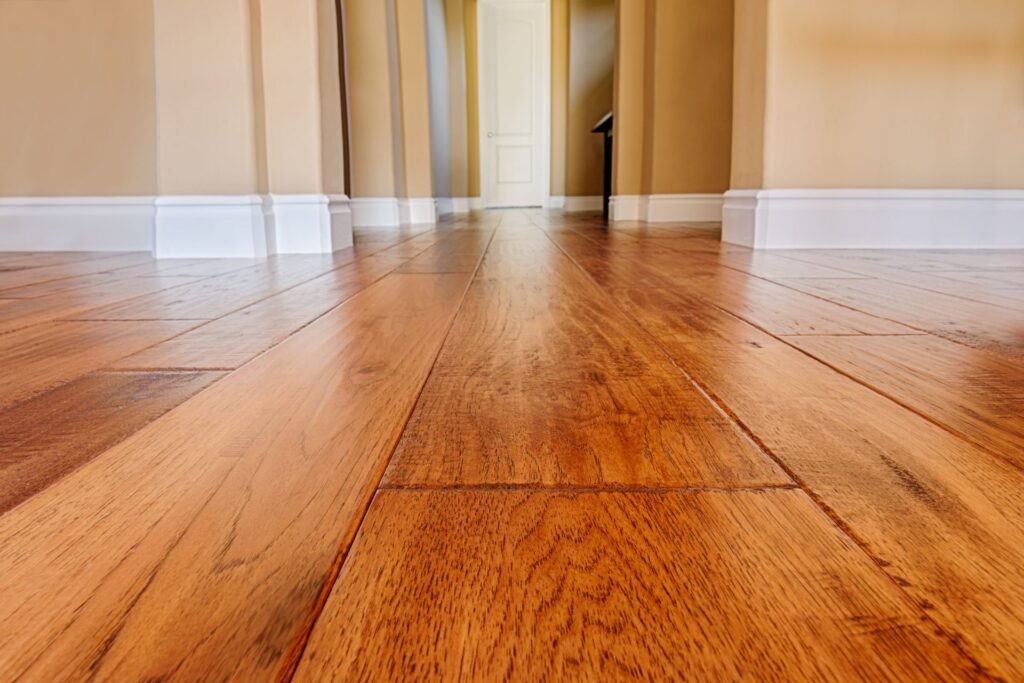Welcome to our comprehensive guide on driveway ideas tailored specifically for New Zealand homes! Your driveway is often the first feature people notice when approaching your property, and a well-designed, functional driveway can enhance both the aesthetic appeal and the value of your home. Whether you’re looking for a sleek, modern driveway or something more rustic and eco-friendly, this guide will provide inspiration and practical advice on choosing the right materials, styles, and layouts for your specific needs. From concrete and gravel to permeable and green driveways, we’ll explore the best options for New Zealand’s diverse climate and terrain, helping you create a beautiful and durable driveway that suits your home perfectly.
A well-designed driveway can significantly enhance the curb appeal and functionality of your home. In New Zealand, popular driveway options include concrete for durability, gravel for a rustic and affordable look, and permeable pavers for eco-friendly drainage. When choosing a driveway material, consider factors such as local climate, terrain, and maintenance needs to find the best fit for your property. For homeowners seeking a modern and stylish driveway, resin-bound surfaces offer a sleek finish, while traditional brick or paving stones add charm and character.
Table of Contents
Understanding The Basics Of Driveway Design
When it comes to enhancing both the functionality and visual appeal of your home, the driveway plays a crucial role. A well-thought-out driveway design not only adds value to your property but also ensures ease of access, safety, and durability over time. Let’s dive into why a driveway matters and the key factors New Zealand homeowners should consider before starting a new driveway project.
Why a Driveway Matters
Functional Aspects of a Driveway
The primary function of a driveway is to provide safe and convenient access to your home. It needs to withstand the wear and tear of daily use, whether that’s from vehicles or foot traffic. A durable driveway made from high-quality materials like concrete, asphalt, or pavers ensures long-term performance, requiring minimal maintenance. Additionally, a well-laid-out driveway improves safety by offering a smooth surface free of hazards like cracks, dips, or uneven areas that could cause accidents.
Convenience is another major aspect to consider. A driveway designed with ample space allows for easy maneuvering, parking, and entry to your home. Whether you’re coming home after a long day or welcoming guests, a functional driveway provides a seamless experience from street to front door.
Aesthetic Appeal and the Impact of a Well-Designed Driveway
Beyond function, your driveway plays a key role in the overall look and feel of your property. It’s often the first thing people see when they approach your home, and a thoughtfully designed driveway can significantly enhance your home’s curb appeal.
The choice of materials, layout, and landscaping surrounding the driveway can create a cohesive look that complements the architectural style of your home. For instance, sleek, modern homes might benefit from a minimalist concrete driveway, while a rustic, countryside home might be better suited to natural stone or gravel. When designed thoughtfully, the driveway becomes an extension of your home’s aesthetic, tying together the exterior elements to create a welcoming and polished appearance.
Key Considerations for New Zealand Homeowners
When designing a driveway in New Zealand, there are specific factors that homeowners should keep in mind, particularly related to the country’s unique climate, terrain, and local regulations.
New Zealand’s Climate
New Zealand’s climate varies significantly across regions, and this should be a top consideration when selecting materials and designing your driveway. In areas with heavy rainfall, such as Auckland or the West Coast, drainage is critical. A driveway that doesn’t properly direct water away from the surface can suffer from pooling, leading to erosion or cracks over time. Using permeable paving materials or installing effective drainage systems can help address this issue.
In colder regions like Canterbury or Otago, where snow and frost are common, materials that can withstand freeze-thaw cycles without cracking are essential. Driveways in these areas might benefit from materials such as asphalt or specially treated concrete that resist temperature fluctuations. Additionally, ensuring the driveway has a slight slope can prevent water from freezing and creating slippery, hazardous surfaces.
For regions with high sun exposure, such as Northland or Hawke’s Bay, UV-resistant materials are a smart choice. Prolonged exposure to strong sunlight can cause some materials, particularly asphalt, to fade or become brittle. Opting for UV-stable materials will help maintain the look and longevity of your driveway in sunny climates.
Terrain and Topography
New Zealand’s diverse landscapes mean that the terrain can vary dramatically from one property to the next. Whether you’re designing a driveway for a steep rural property or a flat urban lot, the topography will dictate much of the planning process.
For urban properties, space may be limited, requiring careful consideration of layout and functionality. In contrast, rural properties often have more flexibility in terms of design, but may need to contend with uneven ground or long driveways. Gravel or reinforced concrete are popular choices for rural areas, where the driveway might need to accommodate larger vehicles or heavier loads.
If your property is on a slope, extra care must be taken in designing a driveway that is both safe and durable. Steep driveways can present challenges in terms of water drainage and vehicle traction. It’s essential to choose materials with good grip, such as textured concrete or pavers, to ensure safety during wet or icy conditions.
Local Council Regulations or Building Codes
Finally, it’s important for New Zealand homeowners to familiarize themselves with any local council regulations or building codes that may impact driveway design. In some areas, there may be restrictions on the materials you can use, or requirements for how water runoff is managed.
For example, some councils may require permeable materials to reduce the impact of stormwater on the environment, while others may have specific guidelines regarding the placement of driveways near public roads or boundaries. Before starting any construction, checking with your local council can save time and ensure that your project complies with all necessary regulations.
Designing a driveway that is both functional and aesthetically pleasing involves careful consideration of various factors, especially for New Zealand homeowners. From choosing materials that can handle the local climate to accounting for your property’s terrain, and making sure you meet local regulations, a well-designed driveway will add long-lasting value to your home. By focusing on durability, safety, and design, you can create a driveway that enhances your property’s functionality and curb appeal for years to come.

Popular Driveway Materials In New Zealand
When it comes to choosing the best driveway material for your home in New Zealand, there are several options to consider. Each material offers its own unique advantages and potential drawbacks, depending on factors like cost, aesthetics, climate, and maintenance needs. In this guide, we’ll dive into the most popular driveway materials used across New Zealand, covering everything from durability to environmental friendliness.
Concrete Driveways
Concrete driveways are one of the most popular options for homeowners in New Zealand, and for good reason. Known for their durability and low maintenance, concrete driveways can withstand the country’s diverse climates, from the wet and humid conditions of Auckland to the icy winters of Queenstown.
What makes concrete a versatile choice is the range of customization options available. For those looking to add some flair, stamped or colored concrete can mimic the look of natural stone or brick, giving your home a unique curb appeal without the higher costs associated with premium materials.
Climate suitability is another significant benefit of concrete. It’s sturdy enough to handle extreme weather conditions, making it ideal for both northern and southern regions of New Zealand. However, it’s essential to ensure proper drainage and sealing, particularly in wetter regions, to prevent cracking over time.
Gravel Driveways
If you’re looking for a more cost-effective driveway option, gravel is an excellent choice. Gravel driveways are not only affordable but also offer a rustic appeal that suits rural homes or properties looking to maintain a natural look.
One of the standout benefits of gravel driveways is their permeability, making them an eco-friendly option for regions in New Zealand that experience heavy rainfall. The ability to allow water to seep through prevents flooding and helps reduce runoff, protecting the surrounding landscape.
While gravel driveways do require some maintenance, such as preventing weed growth and fixing ruts, these tasks are relatively easy and low-cost. Applying weed barriers and occasionally adding fresh gravel can keep your driveway in top condition for years.
Asphalt Driveways
Asphalt is another popular material for New Zealand driveways, particularly for those who want an affordable and smooth surface. Quick installation is a significant advantage, as asphalt can often be laid and ready for use within a day or two.
The smooth surface that asphalt provides is not only aesthetically pleasing but also functional, especially for sloped driveways. This material offers excellent traction and is less prone to cracking compared to concrete, especially in areas with variable temperatures.
However, the downside to asphalt is the need for regular maintenance, particularly resealing every few years to ensure its longevity. Without proper care, asphalt driveways can wear down quickly, making them less durable than other materials in the long run.
Paving Stones/Brick Driveways
If you’re looking for something that enhances the visual appeal of your property, paving stones or brick driveways are an excellent option. These driveways offer a wide variety of design patterns and styles, allowing homeowners to create a custom look that complements their home’s architecture.
One of the biggest advantages of paving stones is their interlocking design, which promotes excellent drainage. This is especially beneficial in areas that experience frequent rainfall, as it helps prevent water pooling on the surface.
While the upfront cost of paving stones or bricks can be higher compared to other materials, they offer long-term value. Properly installed and maintained, they can last for decades, making them a worthwhile investment.
Resin-Bound Driveways
For those who want a sleek, modern look, resin-bound driveways are becoming increasingly popular in New Zealand. This material offers a smooth, seamless finish that is both slip-resistant and UV-resistant, making it perfect for regions with varying weather conditions.
Resin-bound driveways can be customized with different color aggregates to suit your home’s style, offering a versatile and contemporary aesthetic. They are also incredibly durable, standing up to heavy use and extreme weather without cracking or fading.
However, the installation cost of resin-bound driveways can be higher than some other materials. Despite this, the combination of durability and low maintenance requirements makes it a solid long-term investment for New Zealand homeowners.
Choosing the right driveway material depends on several factors, including your budget, aesthetic preferences, and the climate of your region in New Zealand. Concrete driveways offer durability and customization, while gravel driveways provide an eco-friendly and rustic appeal at a lower cost. Asphalt is an affordable, smooth option that requires regular maintenance, while paving stones or brick driveways offer elegance and long-term value. Finally, resin-bound driveways provide a modern, versatile, and weather-resistant solution that’s ideal for many Kiwi homes. By understanding the benefits and challenges of each material, you can make an informed decision that will enhance both the function and appearance of your home for years to come.

Driveway Styles And Layouts To Consider
Your driveway is more than just a functional aspect of your property it’s a key element that can enhance your home’s curb appeal. Selecting the right driveway style and layout depends on factors like your home’s architectural style, available space, and terrain. Whether you’re building a new driveway or updating an existing one, here’s a breakdown of the most popular options to help you make an informed decision.
Traditional vs. Modern Driveway Styles
Classic Straight Driveways for Traditional Homes
For homeowners who want to complement a traditional or classic architectural style, a straight driveway is a timeless choice. It offers a simple, clean look that pairs well with homes featuring symmetrical or colonial design. Straight driveways also tend to be more affordable to install and maintain, as they require fewer materials and labor compared to more intricate layouts.
Curved Driveways for a Grander Entrance
If you want to create a sense of luxury and elegance, a curved driveway is an excellent option. Often seen in larger properties, a curved driveway can add a stately feel, guiding visitors in a sweeping motion to your home’s entrance. Curved layouts are also more flexible, allowing them to follow the natural landscape and work well for properties with mature trees or gardens that you want to preserve.
Modern Minimalist Designs (Clean Lines, Geometric Patterns)
For those with a modern home, sleek, minimalist driveways with clean lines are the perfect match. This style focuses on simplicity and functionality, often using geometric patterns to create a sense of order and precision. Concrete slabs, pavers, and other contemporary materials can be arranged to enhance the architectural features of a modern home while maintaining a clutter-free aesthetic.
Circular Driveways
Advantages for Larger Properties
Circular driveways, often associated with luxury estates, bring a touch of sophistication and practicality to larger properties. They not only make a stunning visual statement but also enhance functionality by improving traffic flow. Vehicles can easily enter and exit without the need to reverse, which is especially beneficial for properties with regular visitors or those who prefer a grand entrance.
Creating a Focal Point for Landscaping
A circular driveway naturally creates a central focal point, making it an ideal opportunity for landscaping enhancements. Many homeowners choose to feature a flower bed, fountain, or sculpture in the middle of the circle, adding elegance and personality to the home’s exterior. It becomes a signature piece of your property, drawing attention to the overall landscape design.
Traffic Flow Benefits
One of the key functional benefits of circular driveways is the improved traffic flow. For larger families or homes with multiple vehicles, a circular layout allows cars to move in and out without congestion. There’s no need to reverse out of the driveway, which adds safety and convenience, particularly for homes with busy streets or limited visibility.
Shared Driveways for Urban Areas
Pros and Cons of Shared Driveways in Densely Populated Areas
Shared driveways are a common feature in urban areas, especially in New Zealand’s densely populated cities. They offer a space-saving solution, but they come with both advantages and disadvantages. On the plus side, shared driveways reduce construction and maintenance costs, as expenses are typically split between homeowners. However, they also require a higher level of coordination and communication between neighbors, particularly when it comes to parking arrangements and upkeep responsibilities.
Best Design Practices for Privacy and Functionality
If you’re dealing with a shared driveway, smart design choices can help improve both privacy and functionality. Consider installing privacy screens, fences, or hedges to create a sense of separation between properties. Additionally, clearly marked parking areas can minimize confusion and potential disputes. Ensuring that the driveway is wide enough for two vehicles to pass can also help alleviate any traffic concerns.
Driveways for Sloped Properties
Special Considerations for New Zealand’s Hilly Areas
In many parts of New Zealand, sloped properties are a common feature. If your home is located on a hill or an uneven terrain, you’ll need to take extra care when designing your driveway. Not only does a sloped driveway present construction challenges, but it also requires specific materials and design techniques to ensure long-term durability and safety.
Tips for Installing a Safe and Durable Driveway on a Slope
One of the most critical aspects of building a sloped driveway is managing water runoff. Proper drainage systems must be in place to prevent erosion and damage to the driveway. Additionally, the incline of the driveway should be carefully calculated to avoid being too steep, which can be difficult to navigate in wet or icy conditions. You may also want to consider adding switchbacks or gentle curves to make the ascent and descent smoother.
Choosing the Right Material for Grip and Weather Resistance
When it comes to sloped driveways, selecting the right material is crucial for both safety and durability. Asphalt or concrete is a popular choice due to its strength and longevity, but you’ll also want to ensure the surface offers enough grip to prevent slipping, especially in wet weather. Pavers can be another excellent option, as they provide traction while also allowing for flexibility in the design. Choosing the right driveway style and layout can greatly influence both the aesthetics and functionality of your property. Whether you prefer the timeless appeal of a straight driveway, the elegance of a circular layout, or the practicality of a shared space, there’s a design that fits your needs. Keep in mind the specific considerations of your environment, such as slopes or shared usage, and make informed decisions about materials and design to ensure a durable, long-lasting driveway that enhances your home’s value and curb appeal.

Eco-Friendly Driveway Solutions
When considering home improvements, it’s important to make choices that not only enhance the property’s appeal but also contribute to environmental sustainability. In New Zealand, eco-friendly driveway solutions are gaining popularity as homeowners become more conscious of their impact on the environment. Whether you’re looking to improve drainage, reduce flooding risks, or simply make greener choices, these solutions offer a perfect balance of practicality and
sustainability. Below, we’ll explore three key eco-friendly driveway options: permeable driveways, green driveways, and using recycled materials.
Permeable Driveways
One of the most important aspects of any driveway is proper drainage. Poorly managed water runoff can lead to flooding, erosion, and damage to the surrounding environment. This is where permeable driveways come into play, offering a solution that allows water to pass through the surface rather than pooling on top.
Why is drainage so important?
When rainfall doesn’t drain properly, it can flood your property or even contribute to larger flooding issues in the community. Traditional driveways made of solid concrete or asphalt don’t allow water to absorb into the ground, which can lead to significant runoff. Permeable driveways, on the other hand, are designed to allow water to flow through, filtering it back into the soil. This not only reduces flood risks but also helps to replenish groundwater reserves.
Material options for permeable driveways
- Permeable Pavers: These pavers are designed with spaces in between to allow water to flow through the joints. They come in various shapes, sizes, and styles, allowing homeowners to create an attractive driveway that complements their home’s design.
- Gravel: A more rustic option, gravel driveways offer excellent water drainage and are a cost-effective solution. The gaps between the gravel pieces naturally allow water to drain through, reducing surface runoff and the risk of flooding.
Permeable driveways are not only functional but also contribute to the environment by reducing the strain on stormwater systems and helping to prevent urban flooding.
Green Driveways
For those looking to combine sustainability with visual appeal, green driveways (also known as grass-covered driveways) are an excellent option. These driveways are essentially strips of grass that cars can drive over, providing a natural and eco-friendly surface for your vehicles. They are particularly well-suited to New Zealand’s flat, sunny areas, where grass can grow healthily without too much intervention.
Why choose a green driveway?
Green driveways offer a unique blend of aesthetics and sustainability. They reduce the amount of impervious surfaces around your home, allowing water to drain more easily into the ground. At the same time, they add a touch of greenery to your property, making it look more natural and vibrant.
However, green driveways aren’t for everyone, and there are some considerations to keep in mind:
Pros of green driveways
- Eco-friendly: Green driveways promote better drainage and reduce runoff.
- Visually appealing: The combination of green grass and your driveway creates a natural, inviting look.
- Helps cool the surrounding area: Grass-covered areas absorb less heat compared to concrete or asphalt, helping to lower local temperatures.
Cons of green driveways
- Maintenance: Grass driveways require regular upkeep, including mowing, watering, and fertilizing to keep the grass healthy.
- Limited vehicle use: Green driveways are best suited for properties with low traffic or where vehicles aren’t parked for extended periods. Constant use can lead to worn patches of grass, reducing their aesthetic appeal.
In short, green driveways are an ideal option if you prioritize sustainability and enjoy the look of natural landscaping, but they may not be practical for every homeowner.
Recycled Materials for Driveways
Another fantastic eco-friendly option is to build your driveway using recycled materials. This approach minimizes waste and reduces the environmental impact associated with producing new building materials. Recycled driveways typically use materials like reclaimed concrete, bricks, and asphalt, giving these resources a second life instead of sending them to landfills.
Types of recycled materials commonly used for driveways
- Recycled Concrete: Leftover concrete from previous construction projects can be crushed and reused to create a durable driveway surface.
- Recycled Bricks: Old bricks can be repurposed to create a rustic and charming driveway. The uneven texture of bricks adds a unique aesthetic, and their durability ensures a long-lasting surface.
- Recycled Asphalt: Similarly, old asphalt can be reclaimed and used to pave driveways. This is not only cost-effective but also reduces the need for new asphalt production, which is energy-intensive.
The benefits of using recycled materials
- Environmental benefits: Reusing materials significantly reduces the demand for new raw resources, lowering your carbon footprint. It also diverts waste from landfills, contributing to a more circular economy.
- Cost savings: Recycled materials are typically less expensive than new ones, making them a more budget-friendly option for eco-conscious homeowners.
Using recycled materials for your driveway combines the best of both worlds environmental responsibility and financial savings. Plus, it adds character to your property, as recycled materials often bring a unique texture and aesthetic that you wouldn’t get from new materials.
Eco-friendly driveway solutions offer a perfect balance between functionality, aesthetics, and sustainability. Whether you opt for permeable pavers to improve drainage, a green driveway to enhance your home’s natural appeal, or recycled materials to reduce your environmental impact, these solutions align with a growing movement toward more sustainable living in New Zealand. Each option comes with its own set of benefits and considerations, but one thing is clear choosing an eco-friendly driveway is a step in the right direction for both your home and the environment.

Enhancing Your Driveway’s Aesthetic Appeal
Your driveway is often the first thing visitors notice about your home, making it a crucial element in your property’s overall curb appeal. With a few thoughtful touches, you can transform your driveway from merely functional to an integral part of your home’s aesthetic. Below, we dive into some key ideas to elevate your driveway’s look while enhancing its practicality.
Incorporating Lighting
One of the easiest ways to boost your driveway’s aesthetic appeal is by incorporating lighting. Not only does lighting enhance your home’s exterior design, but it also serves an important safety function, illuminating the path for drivers and visitors alike.
- Solar-Powered or LED Driveway Lighting: Eco-friendly solar-powered or energy-efficient LED lights are excellent choices for lighting up your driveway. These lighting options provide a soft glow, guiding the way while adding an inviting ambiance to your outdoor space. Solar-powered lights are easy to install and maintain, and they harness the sun’s energy during the day to light up your driveway at night, reducing electricity costs.
- Pathway Lighting Ideas: To maximize your home’s curb appeal, consider using pathway lights along the edges of your driveway. This lighting technique highlights the shape of your driveway and can make it feel wider and more welcoming at night. Options range from sleek, modern designs to rustic lantern-style lights that complement different architectural styles. Choose warm-toned lights to create a cozy atmosphere or brighter, cooler lights for a more contemporary feel.
Landscaping Around the Driveway
Landscaping around your driveway can significantly impact its visual appeal. Incorporating native plants and thoughtful greenery not only beautifies your driveway but also contributes to a low-maintenance, eco-friendly design.
- Native New Zealand Plants: Using native plants is a smart choice for both aesthetic and environmental reasons. Native New Zealand plants, such as flax (harakeke), cabbage trees (tī kōuka), and grasses, are well-adapted to local conditions, making them hardy and low-maintenance options. These plants thrive in various climates and can frame your driveway with natural beauty. By opting for native species, you’re also supporting local ecosystems and biodiversity.
- Low-Maintenance Greenery and Flowers: For homeowners who want a visually appealing driveway without the hassle of constant upkeep, consider plants that thrive in your region’s climate with minimal care. Drought-tolerant species, perennials, and ornamental grasses can add color and texture year-round. Flowering plants such as lavender or hydrangeas can be used to add pops of color that contrast beautifully with the natural greenery.
Driveway Borders and Edging
Driveway borders and edging can elevate the look of your driveway while providing clear definition between your driveway and the surrounding landscape. By incorporating contrasting materials, you can create a visually striking design.
- Contrasting Materials: One way to enhance the aesthetic of your driveway is by using contrasting materials for the borders and driveway itself. For instance, pairing a gravel driveway with stone or brick edging creates a striking visual contrast. The juxtaposition of different textures and colors can make the driveway stand out and complement the architectural style of your home.
- Defining Driveways with Flower Beds or Decorative Elements: Another option for driveway borders is the use of flower beds, grass strips, or decorative rocks. These elements can soften the harsh lines of a driveway and create a more natural transition between your driveway and the rest of your yard. A flower bed filled with seasonal blooms, a grass strip for a more eco-friendly approach, or even a line of decorative rocks can make your driveway feel like an extension of your garden.
Incorporating Driveway Gates
For homeowners seeking additional security or privacy, driveway gates are an excellent solution that doesn’t have to compromise style.
- Security and Privacy Benefits: A driveway gate adds an extra layer of security, controlling who has access to your property. It also offers privacy, which is particularly valuable for homes situated close to the street. Gates can keep pets and children safe within the property, while also deterring unwelcome visitors.
- Style Options for Every Home: Whether your home’s design is traditional or contemporary, there are a variety of driveway gate styles to choose from. Traditional gates often feature wrought iron or wood designs, adding a touch of elegance and sophistication. For modern homes, sleek metal gates with clean lines or minimalist designs can complement your home’s architecture while maintaining functionality. Custom gates can also be tailored to match your home’s color scheme or materials for a cohesive look.
By incorporating lighting, thoughtful landscaping, elegant borders, and stylish driveway gates, you can dramatically enhance your driveway’s aesthetic appeal. Each element not only boosts the visual charm of your home but also adds functionality, making your driveway a safer and more enjoyable space. Whether you’re aiming for a modern minimalist vibe or a lush, natural feel, these ideas will help you achieve a driveway that reflects your personal style while improving your property’s curb appeal.

How To Choose The Right Driveway For Your Home
Choosing the perfect driveway for your home is an important decision that involves more than just aesthetics. It’s about finding the right balance between practicality, cost-effectiveness, and design. To help you make an informed choice, let’s break down the key considerations, from budget to climate, and how they all play a crucial role in selecting the best driveway.
Assessing Your Budget
Before diving into the various driveway options, it’s essential to assess your budget carefully. There are two main financial factors to consider: initial installation costs and long-term maintenance expenses.
- Initial Installation Costs: Different materials come with varying upfront expenses. For instance, gravel tends to be more affordable to install, while concrete or brick paving may be more expensive due to labor and material costs.
- Long-Term Maintenance: Some materials require frequent upkeep, which can add to the overall cost over time. Asphalt, for example, may need resealing every few years, whereas concrete is more durable but could crack over time if not maintained properly. Understanding these costs will help you weigh your options between the immediate affordability and future expenses.
By balancing both short- and long-term costs, you can make a choice that fits your financial plans.
Climate Considerations
Climate plays a huge role in determining which driveway material is the most durable and practical for your home. Depending on the weather conditions in your region, you’ll want to choose a material that can withstand environmental challenges such as heavy rain, scorching sun, or freezing winters.
- Rainy Climates: If you live in a region with heavy rainfall, opting for a permeable material like gravel or permeable pavers can prevent water from pooling on your driveway and reduce the risk of flooding or erosion.
- Dry Climates: For those in arid regions, materials like concrete or brick can withstand high temperatures without suffering significant damage. Be sure to choose a light color to reflect heat and keep your driveway cooler.
- Cold Climates: In areas that experience freezing temperatures, it’s vital to choose materials that can expand and contract without cracking. Asphalt is often a preferred choice in colder regions due to its flexibility. However, concrete can also work if it’s treated with special sealants to prevent cracking.
By choosing a driveway material that suits your climate, you’ll ensure its durability and reduce future repair costs.
Complementing Your Home’s Architecture
Your driveway isn’t just a functional space; it’s also one of the first things people notice when they approach your home. That’s why it’s important to pick a design that complements the overall architecture of your house.
- Modern Homes: For a contemporary look, consider sleek materials like polished concrete or exposed aggregate. Clean lines and minimalist designs work well to enhance the modern aesthetic.
- Colonial or Traditional Homes: If your home has a classic or colonial design, materials like cobblestone or brick can add a timeless charm. These materials often come in a variety of patterns and colors that can match the historical or vintage feel of your home.
- Rustic or Countryside Homes: For homes with a more rustic feel, gravel or natural stone can create a driveway that blends seamlessly with the natural surroundings. These materials offer a more relaxed and countryside appeal, perfect for homes in rural areas or those with expansive gardens.
Matching your driveway design to your home’s architecture not only improves curb appeal but also creates a cohesive look that enhances the overall value of your property.
Consulting with Professionals
While DIY options may seem appealing, consulting with professionals is crucial when choosing and installing a driveway. Here’s why expert advice matters:
- Local Expertise: Local contractors understand the specific challenges posed by your region’s climate, soil type, and other environmental factors. This knowledge ensures that they recommend the best materials and designs for your area.
- Tailored Advice: Every home is unique, and professionals can provide customized solutions that take into account factors such as the slope of your land, drainage requirements, and your home’s architectural style.
- Quality Workmanship: Hiring experienced contractors ensures that your driveway will be installed correctly, reducing the chances of problems like uneven surfaces, poor drainage, or premature wear and tear.
By working with local experts, you can ensure that your driveway is not only aesthetically pleasing but also durable and functional for years to come. Choosing the right driveway for your home involves more than just picking a material that looks good. From assessing your budget and considering climate, to ensuring the driveway complements your home’s architecture and consulting with professionals, each factor plays a critical role in the longevity and appeal of your new driveway. With careful planning and the right advice, you can create a driveway that is both practical and visually stunning, adding value to your home for years to come.

Driveway Maintenance Tips For Longevity
A well-maintained driveway not only enhances the curb appeal of your home but also extends the life of the surface, saving you from costly repairs down the road. Whether your driveway is concrete, asphalt, gravel, or paver, taking proactive steps to maintain it can make all the difference. In this section, we’ll provide you with practical driveway maintenance tips for various types of driveways, including essential winter care strategies for colder climates.
Concrete and Asphalt Driveway Maintenance
Concrete and asphalt driveways are durable, but they require regular care to stay in top condition. Two key aspects of maintenance for these materials are sealing and crack repair, as well as preventing water damage and erosion.
Sealing and Crack Repair Tips
Sealing your driveway is one of the most effective ways to protect it from the elements. For both concrete and asphalt, applying a high-quality sealant every two to three years creates a protective barrier that prevents water, chemicals, and UV rays from penetrating the surface. This not only enhances the appearance of the driveway but also guards against cracks and wear.
If you notice small cracks, don’t delay in repairing them. Water can seep into these cracks, leading to erosion and more extensive damage over time. For asphalt driveways, use a rubberized asphalt crack filler, and for concrete, opt for a concrete patching compound. Regularly inspecting your driveway for cracks and addressing them early will save you from larger repairs in the future.
How to Prevent Water Damage and Erosion
Water is a major enemy of driveways, especially concrete and asphalt. Over time, water can cause erosion, leading to cracks, potholes, and structural damage. To prevent this, ensure that your driveway has a proper slope for drainage, directing water away from the surface. You can also add drainage systems like French drains or swales to guide water off the driveway effectively.
Another important step is cleaning your driveway regularly to prevent debris buildup. Leaves, dirt, and oil spills can trap moisture, accelerating water damage. Pressure washing your driveway every few months can help keep it free of damaging materials.
Gravel and Paver Driveway Care
Gravel and paver driveways add a rustic or elegant touch to your property but require a unique set of maintenance strategies to keep them looking their best.
Keeping Gravel Even and Preventing Weed Growth
One common issue with gravel driveways is that the gravel tends to shift and create uneven surfaces. To keep your gravel driveway smooth, you’ll need to redistribute the gravel periodically. Using a rake or a grading blade, you can easily even out the surface, especially after heavy rains or significant vehicle use. Adding a fresh layer of gravel every couple of years will also help maintain an even surface.
Weeds are another problem that can mar the appearance of a gravel driveway. To prevent weed growth, use a landscape fabric beneath the gravel. If weeds still manage to sprout, apply a weed-killing solution or pull them manually before they spread.
Replacing or Cleaning Pavers to Maintain Their Appearance
For paver driveways, maintaining their appearance involves regular cleaning and occasional replacement of damaged or stained pavers. Sweep your paver driveway regularly to remove dirt and debris, and power wash it a couple of times a year to restore its original color and texture.
If a paver becomes cracked or stained, replace it as soon as possible. Fortunately, pavers can be easily swapped out, so you don’t have to worry about replacing large sections of your driveway. Keeping pavers in good condition will prevent the formation of uneven spots and enhance the aesthetic appeal of your home.
Winter Maintenance Tips (for Colder Regions)
Winter brings additional challenges for driveway maintenance, particularly in regions that experience heavy snow and ice. Proper winter care will not only keep your driveway safe but also prevent damage from freezing temperatures.
Snow and Ice Removal
Snow and ice buildup can damage your driveway, especially if you use the wrong tools or methods for removal. For concrete and asphalt driveways, avoid using metal shovels, as they can scratch or chip the surface. Instead, opt for plastic shovels or snow blowers to clear snow efficiently without damaging the material.
If your driveway is made of gravel, snow removal can be tricky, as using a shovel or snow blower may disturb the gravel. In this case, consider using a snow rake or leaving a thin layer of snow to protect the gravel from being displaced.
Preventing Salt Damage on Your Driveway
While salt is an effective deicer, it can wreak havoc on your driveway, particularly concrete surfaces. Salt can cause spalling, where the surface of the driveway flakes off, and can also lead to cracking from freeze-thaw cycles. Instead of salt, use sand or calcium magnesium acetate (CMA) as alternatives. These options provide traction and de-icing without the harmful effects of salt.
For asphalt driveways, salt is less damaging, but it’s still a good idea to limit its use to avoid any long-term impact. Additionally, after winter, thoroughly clean your driveway to remove any residual salt or deicing agents to prevent ongoing damage.
By following these driveway maintenance tips for longevity, you can extend the life of your driveway, maintain its appearance, and save money on repairs. Whether you’re dealing with concrete, asphalt, gravel, or pavers, a little maintenance goes a long way in keeping your driveway in great shape, season after season.

FAQs: About Driveway Ideas NZ
What is the most durable driveway material for New Zealand homes?
Concrete is generally considered the most durable material for New Zealand driveways. It can withstand heavy traffic, weather conditions, and requires minimal maintenance. For regions prone to frost or temperature fluctuations, opting for high-quality concrete with proper drainage is recommended to avoid cracking.
What are the best eco-friendly driveway options in New Zealand?
Eco-friendly options include permeable pavers, gravel driveways, and resin-bound surfaces made from recycled materials. Permeable driveways allow water to drain through, reducing the risk of flooding, while recycled materials minimize environmental impact by reusing resources.
How much does it cost to install a driveway in New Zealand?
The cost of installing a driveway depends on the materials used and the size of the area. On average, gravel costs between $50 and $80 per square meter, concrete ranges from $90 to $120 per square meter, pavers cost between $120 and $200 per square meter, and resin-bound driveways range from $150 to $250 per square meter. It’s important to factor in additional expenses such as excavation, drainage, and labor when planning your budget.
What’s the best driveway material for coastal areas in NZ?
For coastal areas prone to salty air and moisture, pavers or resin-bound surfaces are ideal. These materials resist corrosion better than concrete or asphalt. Additionally, using permeable materials can help manage excess water due to rain or high humidity levels.
How can I maintain a gravel driveway?
Gravel driveways require regular maintenance, including raking the gravel to keep the surface even, filling in low spots where gravel has shifted, removing any weeds that may grow through the surface, and adding fresh gravel every 1-2 years to maintain the driveway’s thickness and appearance.
What are the main benefits of permeable driveways?
Permeable driveways provide several benefits, such as reducing surface runoff and aiding drainage, being eco-friendly by allowing water to filter back into the ground, and complying with local council requirements in flood-prone areas. These driveways are particularly advantageous in regions with heavy rainfall, like parts of the North Island.
Can I install a driveway on a slope?
Yes, you can install a driveway on a slope, but it requires careful planning. For steep slopes, concrete and resin-bound driveways are the most suitable due to their durability and ability to maintain grip. Installing proper drainage is essential to prevent erosion or water damage.
What kind of driveway is best for a rural property in New Zealand?
Gravel is a popular choice for rural properties due to its cost-effectiveness and natural look. It’s easy to maintain and blends well with the rustic environment of rural areas. Additionally, gravel driveways offer good drainage, which is crucial in rural locations prone to heavy rains.
How can I enhance the curb appeal of my driveway?
There are several ways to enhance the aesthetic of your driveway, such as adding solar-powered lights along the edges, using decorative borders with contrasting materials like stone or pavers, landscaping with native plants or flower beds along the sides, and installing a driveway gate for added security and style.
How often should I seal my concrete or asphalt driveway?
Concrete and asphalt driveways should be sealed every 2-3 years to maintain their appearance and durability. Sealing protects the surface from moisture, cracks, and UV damage, extending the lifespan of the driveway.
Conclusion
When considering driveway design options, it’s essential to understand the various materials and styles available, each offering unique benefits. Gravel driveways, for example, are cost-effective and provide excellent drainage, while concrete driveways offer durability and low maintenance. Paved options such as brick or stone bring aesthetic appeal and long-lasting performance, while asphalt driveways are known for their affordability and ease of installation. Each choice has its own advantages, making it important to select the one that fits your specific needs, budget, and the look you want to achieve. Now is the perfect time to invest in upgrading your driveway to enhance the curb appeal and functionality of your home. Whether you are looking to improve your property value, create a safer space, or simply make your home more inviting, a well-designed driveway can make all the difference. To get started, consider reaching out to a local contractor who can guide you through the process, or take the time to do some research and find inspiration for your ideal driveway. By taking action now, you can transform your driveway into a beautiful, functional space that complements your home and meets your long-term needs. For expert advice or installation services, consider contacting Digwork in Christchurch or Driveways.co.nz in Auckland, who specialize in durable and eco-friendly driveway solutions across New Zealand.
About the Author:
Mike Veail is a recognized digital marketing expert with over 6 years of experience in helping tradespeople and small businesses thrive online. A former quantity surveyor, Mike combines deep industry knowledge with hands-on expertise in SEO and Google Ads. His marketing strategies are tailored to the specific needs of the trades sector, helping businesses increase visibility and generate more leads through proven, ethical methods.
Mike has successfully partnered with numerous companies, establishing a track record of delivering measurable results. His work has been featured across various platforms that showcase his expertise in lead generation and online marketing for the trades sector.
Learn more about Mike's experience and services at https://theleadguy.online or follow him on social media:


